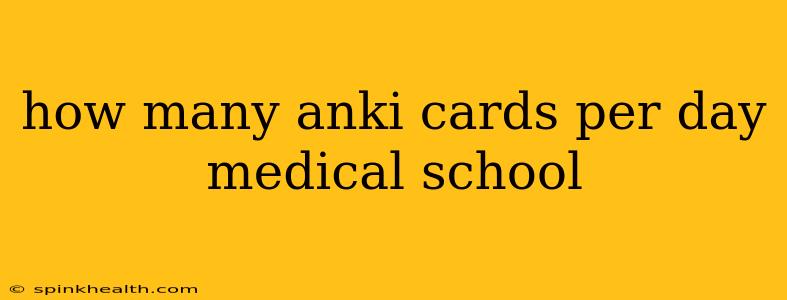How Many Anki Cards Per Day for Medical School? The Myth of the Magic Number
The hallowed halls of medical school echo with whispers of Anki, the powerful spaced repetition software that promises mastery of vast medical knowledge. But the question burning in every first-year's mind, and even seasoned students, is: how many Anki cards should I do each day? The truth is, there's no magic number. It's not about quantity; it's about quality and sustainable learning.
My journey through medical school taught me this lesson the hard way. Initially, I chased the elusive "perfect" number, striving to cram as many cards as possible into each day. Burnout? Check. Retention? Not so much. My brain felt like a soggy sponge, unable to absorb the sheer volume of information.
This article explores the pitfalls of focusing solely on card count and offers a more effective approach to Anki in medical school. We'll delve into personalized strategies and address common concerns.
What's More Important Than the Number of Anki Cards?
The real goal isn't simply to plow through cards; it's to master the material. Consider these critical factors:
-
Quality over Quantity: A meticulously crafted card with clear, concise information and effective imagery will be far more valuable than ten hastily made, poorly structured cards. Focus on creating high-quality cards, ensuring clarity and addressing potential knowledge gaps.
-
Understanding, Not Just Memorization: Anki excels at memorization, but true understanding is key. Actively engage with the material; don't just passively review. Ask yourself questions, relate concepts to previous knowledge, and actively recall information before reviewing the card's answer.
-
Spaced Repetition System (SRS): Anki's power lies in its SRS algorithm. The system cleverly spaces out reviews, ensuring optimal retention. Don't try to game the system by cramming many cards at once, as this undermines the effectiveness of the SRS.
-
Active Recall: Before even looking at the answer side of an Anki card, try your best to recall the information. This active recall strengthens memory formation significantly more than passive reading.
How Many Anki Cards Should I Review Each Day? A Personalized Approach.
Instead of aiming for a specific number, consider these guiding principles:
-
Start Small and Build Gradually: Begin with a manageable number of new cards and reviews, gradually increasing as your comfort level grows. Overloading yourself early will lead to frustration and burnout.
-
Listen to Your Body: If you're feeling overwhelmed or burnt out, take a break. Continuous learning is more effective than sporadic, intense cramming sessions.
-
Prioritize Based on Exams: Focus on reviewing cards relevant to upcoming exams. This ensures your Anki efforts directly support your academic goals.
-
Adapt to Your Learning Style: Some students find reviewing cards in short bursts throughout the day more effective, while others prefer longer, focused sessions. Experiment to find what works best for you.
-
Regular Review is Key: Consistency is essential for effective learning with Anki. Aim for regular review sessions, even if it's just for a short period.
How Do I Deal With Overwhelm While Using Anki?
Many students struggle with the sheer volume of material in medical school. Anki can exacerbate this feeling. Here's how to avoid overwhelming yourself:
- Break Down Large Topics: Divide complex subjects into smaller, more manageable chunks. Create separate decks for each subtopic.
- Prioritize: Focus on the most important concepts first. Don't get bogged down in details until you've mastered the fundamentals.
- Time Management: Allocate specific time slots for Anki reviews in your daily or weekly schedule. Treat it like any other important appointment.
- Regular Breaks: Take regular breaks during your study sessions to avoid burnout. A short walk, a quick stretch, or a few minutes of meditation can significantly improve focus.
In Conclusion: The journey to mastering medical school curriculum with Anki isn't about a magic number of cards per day. It's a marathon, not a sprint. Focus on quality, consistency, and a personalized approach to find your sustainable rhythm. The right number is the number that allows you to learn effectively and consistently without burning out.

